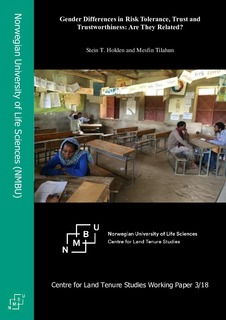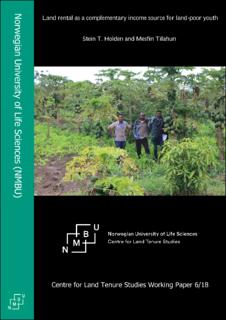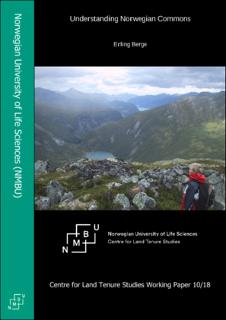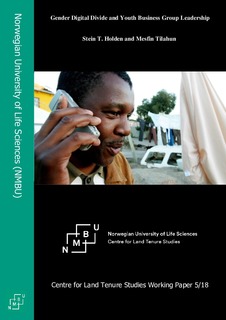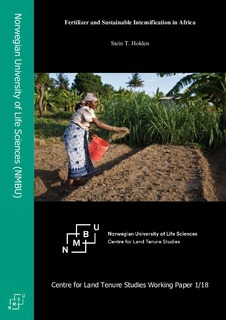Location
NMBU's mission is to contribute to the well-being of the planet. Our interdisciplinary research generates innovations in food, health, environmental protection, climate and sustainable use of natural resources.
About NMBU
NMBU's research is enabling people all over the world to tackle the big, global challenges regarding the environment, sustainable development, how to improve human and animal health, renewable energy sources, food production, and land- and resource management.
Members:
Resources
Displaying 11 - 15 of 98Gender differences in risk tolerance, trust and trustworthiness: Are they related?
The paper assesses risk tolerance, trust and trustworthiness among male and female youth group members in recently formed primary cooperative businesses in Ethiopia. Male members are found to be more risk tolerant, trusting and trustworthy than females. There is a strong positive correlation between individual risk tolerance and trust for male while this correlation is much weaker for female members. Individual risk tolerance is positively correlated with trustworthiness for males but not for females. Females are more trusting and trustworthy in groups with more risk tolerant members.
Land rental as a complementary income source for land-poor youth
Continued high population growth in already densely populated rural areas in parts of Sub-Saharan Africa makes it harder for youth to choose agriculture as their main source of income. We investigate whether near landless youth can still access rented land as a complementary source of income. We utilize a unique data set of rural youth that have been allocated rehabilitated communal land to form formalized business groups for joint business activity. They rely on complementary sources of income and land renting is one of these.
Understanding Norwegian commons
The paper reviews the development of the legal status of Norwegian commons from the first known legislation on commons. The development can be divided into 5 periods.
The first period lasted until about 1300. In this period, the commons changed from being a local matter for the chiefs and the local thing to become a national resource where also the King had rights to resources for defence of the realm.
Gender Digital Divide and Youth Business Group Leadership.
We assess the gender difference in mobile phone ownership among youth business group members, and how it affects election into leadership and group board positions in recently established rural youth business groups in northern Ethiopia. Based on data on 1125 youths from 119 youth business groups where 32% of the members were female, 37% of the females and 70% of the males owned mobile phones. Male members were twice as likely to become board members and five times as likely to become group leaders.
Fertilizer and sustainable intensification in Africa
The paper investigates the important role of fertilizer to enhance sustainable intensification and food security in Sub-Saharan Africa based on a multi-disciplinary literature review. The review starts with a macro-perspective taking population growth, economic development and climate change into account. This is complemented with a micro-perspective summarizing findings from comprehensive micro-data in selected African countries. Agronomic, environmental and economic profitability implications of fertilizer use are reviewed.


